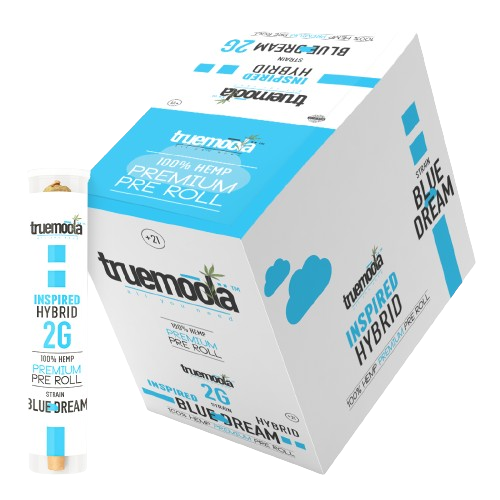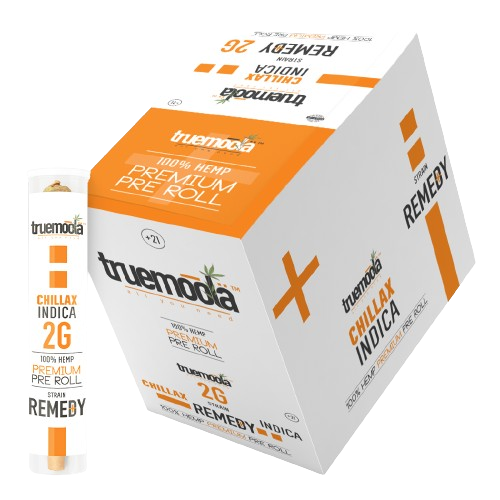Cannabis is a plant that has been used by humans for its medicinal properties for thousands of years. In recent times, researchers have discovered that various cannabinoids found in cannabis have the potential to provide numerous health benefits. In this article, we will examine four of the lesser-known cannabinoids: THCA, THCJD, THCP, and HHCP. We'll take a look at what they are, how they differ from each other, and what benefits they might provide.
Understanding the Different Cannabinoids
Cannabinoids are compounds found in the cannabis plant, and over 100 different cannabinoids have been identified so far. The most well-known and abundant cannabinoids are THC and CBD. THC is the psychoactive compound that provides the "high" associated with cannabis use, while CBD is non-psychoactive and has been linked to numerous health benefits, such as reducing inflammation and anxiety.
Now let's get to know the four lesser-known cannabinoids:
What is THCA?
THCA is the acidic precursor to THC and is found in raw cannabis plants. When cannabis is heated, THCA is converted into THC. THCA doesn't have psychoactive effects, but it has been associated with various potential health benefits.
Some studies have suggested that THCA may have anti-inflammatory, neuroprotective, and anti-proliferative effects. In fact, THCA is being investigated as a potential treatment for conditions such as epilepsy, arthritis, and cancer.
What is THCJD?
THCJD is similar to THC, but it has a slightly different molecular structure. This difference in structure could potentially lead to differences in how it interacts with the human body and any potential benefits it may provide.
While there is currently limited research on THCJD, some studies have suggested that it may have similar effects to THC, such as pain relief and appetite stimulation. However, more research is needed to fully understand the potential benefits and risks of this cannabinoid.
What is THCP?
THCP is a cannabinoid that has been recently discovered. Research has shown that THCP could be up to 30 times more potent than THC, making it one of the most potent cannabinoids discovered thus far.
Early studies have suggested that THCP may have similar effects to THC, such as pain relief and anti-inflammatory properties. However, due to its potency, there are concerns about the potential risks and side effects of using THCP. More research is needed to fully understand the effects of this cannabinoid.
What is HHCP?
HHCP is another recently discovered cannabinoid. There is currently very little information available about HHCP, but early studies have suggested that it may have psychoactive effects.
Some researchers believe that HHCP may have potential as a treatment for conditions such as anxiety and depression, but more research is needed to fully understand its effects and potential risks.
The Benefits of THCA
THCA, or tetrahydrocannabinolic acid, is a non-psychoactive compound found in cannabis plants. While it is often overshadowed by its more well-known counterpart, THC, THCA has been shown to have numerous potential health benefits.
Anti-inflammatory Properties
One of the most promising benefits of THCA is its ability to reduce inflammation in the body. Inflammation is a natural response to injury or infection, but when it becomes chronic, it can contribute to a range of health problems, including arthritis, multiple sclerosis, and inflammatory bowel disease. THCA has shown promise in reducing inflammation and may be a valuable tool in managing these conditions.
Research has shown that THCA works by inhibiting the production of pro-inflammatory cytokines, which are molecules that contribute to inflammation in the body. By reducing the production of these molecules, THCA may be able to help reduce inflammation and alleviate symptoms.
Neuroprotective Effects
Another potential benefit of THCA is its neuroprotective properties. Studies have shown that THCA may be able to help protect the brain from degenerative diseases such as Alzheimer's and Parkinson's.
Research has shown that THCA works by reducing oxidative stress in the brain. Oxidative stress is a process that occurs when there is an imbalance between the production of free radicals and the body's ability to neutralize them. When this happens, free radicals can damage cells and contribute to the development of neurodegenerative diseases. THCA may be able to help prevent this damage by reducing oxidative stress and protecting brain cells.
Potential Cancer-fighting Properties
Early research has suggested that THCA could potentially help fight certain types of cancer. One study found that THCA was able to inhibit the growth and spread of prostate cancer cells in mice.
Research has shown that THCA works by activating a pathway in the body that causes cancer cells to die. This process is known as apoptosis, and it is a natural way for the body to get rid of damaged or abnormal cells. By activating this pathway, THCA may be able to help prevent the growth and spread of cancer cells.
While the research on THCA is still in its early stages, the potential health benefits of this compound are promising. As more research is conducted, we may learn even more about the ways in which THCA can support our health and well-being.
The Benefits of THCJD
THCJD is a compound that has been gaining attention in the medical community for its potential health benefits. While it is still being studied, early research suggests that THCJD may have a number of positive effects on the body and mind.
Pain Relief
One of the most well-known benefits of THCJD is its potential to relieve pain. Like THC, the compound has been shown to have pain-relieving properties. This could be useful in the treatment of chronic pain conditions such as arthritis, fibromyalgia, and neuropathy. Some researchers believe that THCJD may be even more effective than THC in treating pain, making it an exciting area of study for the medical community.
In addition to its pain-relieving properties, THCJD may also have anti-inflammatory effects. Inflammation is a common cause of pain, so reducing inflammation in the body could help to alleviate discomfort and improve overall health.
Appetite Stimulation
Another potential benefit of THCJD is its ability to stimulate appetite. This could be useful in the treatment of eating disorders such as anorexia nervosa or for individuals undergoing chemotherapy, who often experience a loss of appetite as a side effect of treatment.
While THC is also known for its appetite-stimulating effects, some researchers believe that THCJD may be even more effective in this regard. This could make it a valuable tool for healthcare providers looking to help patients regain their appetite and maintain a healthy weight.
Antidepressant Effects
In addition to its physical benefits, THCJD may also have positive effects on mental health. A study conducted on rats found that the compound had antidepressant effects similar to those of a common antidepressant medication called imipramine.
This is an exciting finding, as depression is a common and often debilitating mental health condition. If THCJD can be shown to have similar effects in humans, it could offer a new treatment option for individuals struggling with depression.
Overall, while more research is needed to fully understand the potential benefits of THCJD, early studies suggest that it could be a valuable tool in the treatment of a variety of health conditions. As researchers continue to explore this compound, we may discover even more ways in which it can be used to improve human health and well-being.
The Benefits of THCP
THCP, or tetrahydrocannabiphorol, is a relatively new compound that is being researched for its potential benefits. While it is similar to THC, it is believed to be much more potent. Here are some of the potential benefits of THCP:
Enhanced Potency
The high potency of THCP means that smaller doses could potentially produce the same effects as larger doses of THC. This could be useful for individuals who want to use cannabis for medicinal purposes but are sensitive to the psychoactive effects of THC. Additionally, because THCP is so potent, it may be possible to create cannabis products with lower levels of THC, which could be beneficial for those who want to avoid the psychoactive effects altogether.
Studies are still ongoing to determine the exact potency of THCP, but early results suggest that it could be up to 30 times more potent than THC.
Improved Sleep Quality
Early research has suggested that THCP may have sedative properties, which could help improve sleep quality for individuals who struggle with insomnia or other sleep disorders. While more research is needed to confirm these findings, the potential for THCP to improve sleep quality is promising.
THCP may also be beneficial for individuals who suffer from sleep apnea. One study found that cannabis use was associated with a reduction in sleep apnea symptoms, and THCP's sedative properties could potentially enhance this effect.
Anxiety Reduction
THCP may also have potential anxiety-reducing properties. One study found that THCP was able to reduce anxiety in mice at lower doses than THC. While more research is needed to determine the exact mechanisms behind this effect, the potential for THCP to help individuals with anxiety disorders is promising.
Additionally, because THCP is so potent, it may be possible to create cannabis products with lower levels of THC, which could be beneficial for individuals who experience anxiety as a side effect of THC use.
Overall, while more research is needed to fully understand the potential benefits of THCP, early results are promising. As research continues, it is likely that we will learn more about this compound and its potential for medicinal use.
The Benefits of HHCP
As mentioned earlier, there is currently very little information available about HHCP. However, early studies have suggested that it may have psychoactive effects similar to those of THC.
HHCP, or hexahydrocannabinol-phosphate, is a relatively new compound that is being researched for its potential benefits. While more research is needed to fully understand its effects, early studies have shown promising results.
One potential benefit of HHCP is its ability to reduce inflammation. Inflammation is a natural response of the body to injury or infection, but chronic inflammation can lead to a variety of health problems, including arthritis, heart disease, and cancer. HHCP has been shown to have anti-inflammatory properties, which could make it a useful treatment for these conditions.
Another potential benefit of HHCP is its ability to relieve pain. Pain is a common symptom of many conditions, including arthritis, migraines, and cancer. HHCP has been shown to have analgesic properties, which means it could help to reduce pain without the use of opioids or other potentially addictive medications.
In addition to its potential health benefits, HHCP may also have recreational uses. Some early studies have suggested that it may have psychoactive effects similar to those of THC, the compound that is responsible for the "high" associated with marijuana use. While more research is needed to fully understand these effects, they could make HHCP an attractive alternative to marijuana for those who want to experience its psychoactive effects without the legal or social risks associated with marijuana use.
Overall, while more research is needed to fully understand the potential benefits of HHCP, early studies have shown promising results. Its ability to reduce inflammation and relieve pain make it a potentially useful treatment for a variety of health conditions, while its psychoactive effects could make it an attractive alternative to marijuana for recreational use.
Conclusion
While research into these lesser-known cannabinoids is still in its early stages, there is potential for them to provide numerous health benefits. As always, it's important to consult with a healthcare provider before using any cannabis products for medicinal purposes.
















